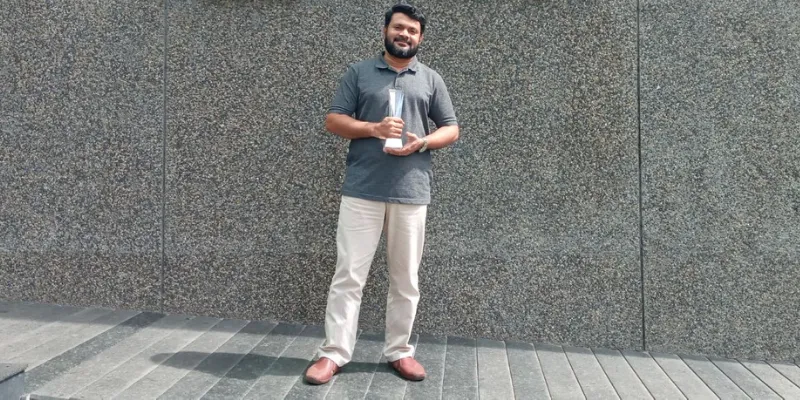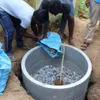From Bisleri addressing the plastic menace to a student innovation that impressed Putin, here are this week’s top social stories
This week, we bring you stories of individuals and organisations bringing positive change in society – from Bisleri’s Bottles for Change to a smart water dispenser built by a student - and more.
Environmental changes have become a top concern for governments, organisations, and individuals around the world. Be it global warming or plastic pollution, many stakeholders are rising to fight for the cause.
Social Story brings you some stories about individuals and organisations making an impact in the space.
Bisleri is using its 'Bottles for Change' initiative to encourage people to recycle plastic
According to a Down to Earth report, the plastic processing industry in 2018 had estimated that polymer consumption was likely to grow at 10.4 percent between 2017 and 2022, with nearly half of the consumption amounting to single-use plastic.
In order to create change around plastic consumption and recycling, Bisleri-backed initiative ‘Bottles for Change’ is spreading awareness about plastic usage and disposal in a number of innovative ways since the past couple of years.

Anjana Ghosh, Director of Marketing and OSR, Bisleri International.
‘Bottles for Change’, an initiative launched by Bisleri in 2017, is changing the way Indian citizens looks at plastic. It aims to create awareness and educate citizens about the importance of recycling plastic. For this, Bisleri has partnered with Mumbai-based NGO Parisar Bhagni Vikas Sangh (PBVS), Sampurna Earth, a social enterprise and market leader in the waste management segment, and Dalmia Polypro Industries.
Meet the Class 9 student from Odisha whose ‘smart’ water dispenser impressed Russia’s Vladimir Putin
P Biswanath Patra, a student of Class 9 from Berhampur, Odisha, has built an impressive water dispenser as part of the Deep Technology Education Programme in Sochi, Russia, in collaboration with NITI Aayog's Atal Innovation Mission (AIM).

Biswanath Patra speaking to President Vladimir Putin (Image Credit: The Hindu)
The ‘Smart water dispenser’ is an electronic water-flow controlling mechanism that can replace the water meter and provide control of the water supply to the authorities for equal distribution. The prototype cost just Rs 2,000. Its main components include an easily available microprocessor, a solenoid valve, and a flow sensor.
Meet the woman teaching rural folk how to create art from bottle gourds
Seema Prasad, a resident of Mysuru, Karnataka, has found a bizarre yet suitable alternative to plastic in bottle gourd. She makes several items like containers, storage vessels, vases, pen stands, and decorative lampshades simply by using the thick skin of the vegetable.
In 2017, Seema decided to extend her efforts by promoting the art form with the launch of Krishikala along with her husband, Krishna Prasad. The enterprise helps rural folk make artistic creations from the humble gourd, with an intention to provide employment and income for them. Seema spearheads the training of farmers, women, and tribes in this regard.

Seema shows a vase made from bottle gourd.
Most of the items that farmers and rural women are making as part of Krishikala using bottle gourds are sold in the market for around Rs 500 each. This, in turn, enables them to earn more money.
Meet the 32-year-old IAS officer who donated his salary to renovate schools in Meghalaya
Swapnil Tembe, a civil services officer, is lighting up the lives of thousands of students by undertaking a series of projects to renovate schools in his district. One of his flagship programmes called STAR, which stands for ‘School Transformation by Augmenting Resources’, has already restored 60 schools.
Despite facing tough times during his adolescence, Swapnil did not step back. He managed to earn by teaching at a coaching centre while preparing for the UPSC exams. One of the programmes he started was ‘Adopt a School’, where he inspired people to contribute funds to adopt a school and renovate the infrastructure, and distribute learning material and other essential resources. Swapnil himself donated his two month’s salary for the cause.
In January 2020, the IAS officer is planning to partner with Azim Premji Foundation to train teachers in the district.

IAS officer Swapnil Tembe wears traditional head gear and waist coat handcrafted in Garo.
This Kochi-based startup helps mitigate risks during disasters through effective communication
According to WorldAtlas, a re-titled edition of the hugely successful Collins Mini Atlas, a few of the most disaster-prone countries around the globe include India, the US, China, Ethiopia, and Malawi. Amid this situation, a Kochi-based startup HW Design Labs aims to help mitigate risks during disasters.

Jayakrishnan AL, Founder and Director, HW Design Labs.
One of its flagship products is the FM RDS-based (Radio Data Service) Disaster Warning Broadcast System, which consists of a hardware device and a mobile application.
HW Design Labs’ disaster warning indicators are encoded in the form of text and broadcasted to users with the RDS feature via the app. Since the solution uses an in-built FM receiver in smartphones to send real-time messages, the need for network or internet connectivity is optional.
(Edited by Saheli Sen Gupta)









